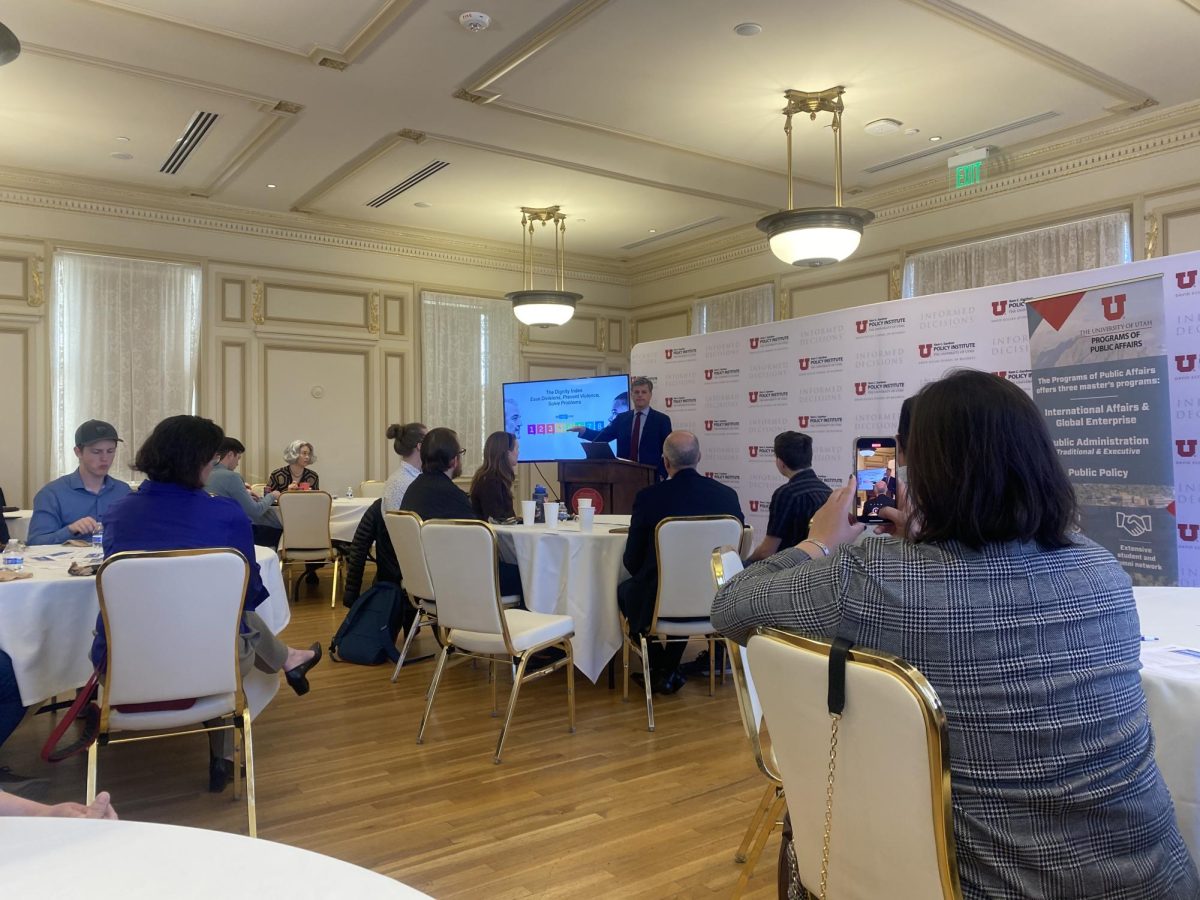A group of volunteers at the University of Utah Hospital is working to make sure no patient has to die without someone by their side.
No One Dies Alone (NODA) connects volunteers with patients who do not have friends or family present so they have someone to support them as they pass away.
NODA is an imminent death program, which means volunteers are contacted 48 to 72 hours before a patient’s expected passing to sit with them in rotating three-hour shifts. Volunteers don’t know the patient beforehand, but they are still able to provide companionship in the patient’s final moments before passing.
Gretchen Case, one of the program’s directors, said the main goal of NODA is to provide comfort to some of the hospital’s most vulnerable patients.
“Think of the impact that must have on individual patients, whether or not they need or participate in NODA — to know that someone is there if they do not want to be alone during this profound transition,” Case said.
The NODA program exists in other states across the country, but the U’s hospital is the only location in Utah to provide this patient service. The idea was brought to the U two years ago by a medical resident named Zoe Cross, who had participated in the same program at the University of Washington before coming to Utah.
Cross shared the idea with Case, who is a professor at the School of Medicine. Case immediately took interest in the idea and worked with Tyler Montgomery, a chaplain at the hospital, to write a project proposal to the Imagine Perfect Care Program through U of U Health.
Imagine Perfect Care granted seed funding to NODA in May 2017, and the program was launched soon after.
NODA currently has 45 active volunteers and is continuing to grow. The group is composed of people from across the community, with a broad range of ages, backgrounds and occupations. To participate in the program, volunteers must go through a three-hour training which provides an in-depth explanation and discussion of the death and dying process.
NODA volunteers are coordinated by Brian Zenger, a current M.D. and Ph.D. student at the U School of Medicine. Zenger said volunteers are taught to create a healing environment for patients, rather than a curative one. Since this role can be emotionally challenging, chaplains and licensed social workers are available to help volunteers through the process. Despite the difficulty of it, Zenger said the work volunteers do is immensely rewarding.
“The entrance to life and the exit from life has a lot of similarities,” Zenger said. “It’s really an honor to be involved in either one of those situations, and for someone going through the death and dying process, it truly can be beautiful and impactful and very heartwarming to be present for that.”
Zenger said he feels providing patients with company in their final moments is an important service and the program has been successful so far.
“I think every patient we can sit with is a success,” Zenger said. “I think this drives home the university’s initiative to treat every patient as an individual and to care for every single patient in the hospital no matter what situation they’re in.”
@TheChrony












